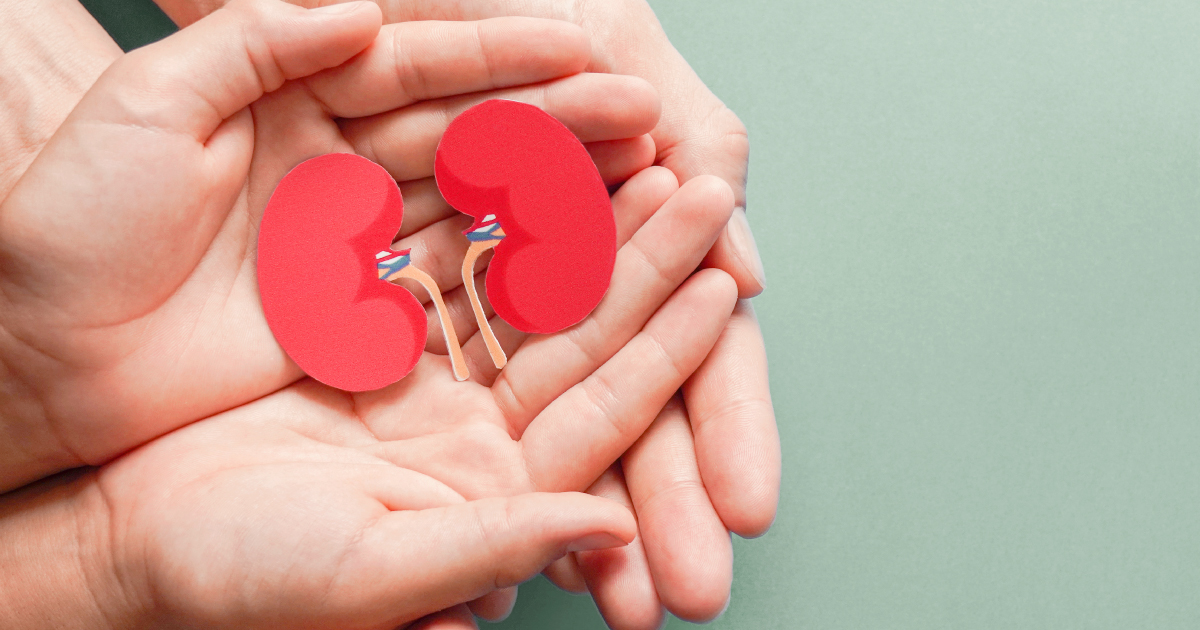National Kidney Month: Bridge the Knowledge Gap to Better Kidney Care

March is National Kidney Month. This makes it a great time to get to know a little bit about your kidneys, the diseases that affect them, and what you can do to protect them.
Chronic kidney disease is a serious disorder that can eventually lead to total kidney failure. If you’d like to learn more about this disease and what you can do to maintain healthy kidneys, read on now.
Statistics: Chronic Kidney Disease
Chronic kidney disease is probably more common than you think. In fact, it’s estimated that 15% of the population — that’s 37 million people — suffer from it. However, as many as 9 out of 10 adults who do have CKD are unaware that they have it.
CKD is more common in women than in men. It’s most prevalent in people over the age of 65 — although anyone can get it.
Risk Factors For CKD
There are certain groups that are at a higher risk of developing CKD than others. For example, CKD is more common in Black or Hispanic adults than in White adults or Asian adults.
As well as this, family members of those with CKD are at a higher risk of developing this disease. People who are obese, have diabetes, have high blood pressure, or are smokers all also have a greater chance of developing CKD.
Who Should Be Screened and What’s Involved in a Kidney Screening?
If you’re in one of the above risk groups for CKD, then it’s recommended by the National Kidney Foundation that you have a kidney screening performed on you. As well as this, if you’re showing signs or symptoms of CKD, then you may also want to have a screening done. Symptoms include blood in your urine, weight loss, swollen ankles, wrists, or hands.
So, what’s involved in the kidney screening process? Doctors will take your blood, to measure for levels of a waste product called creatinine. They will also take a urine sample.
Then you may undergo an ultrasound scan, MRI scan, or CT scan to see what your kidneys look like. In some cases, doctors may also perform a kidney biopsy.
Treating and Managing CKD
If you have a kidney screening and your test results indicate that you do suffer from CKD, there are some steps you can take to treat and manage the disease.
The first and most important will be to control your blood pressure. You should also ensure your blood glucose levels are within a healthy range. This can be done through a modified diet and an active lifestyle.
You should work with your health care provider to regularly monitor your kidneys to see how your disease is progressing. They may also prescribe medicines to lower blood pressure, control blood glucose, and lower cholesterol.
Care For Your Kidneys on National Kidney Month
This National Kidney Month, prioritize learning about what you can do to keep your kidneys healthy. Make smarter choices that benefit your whole body. If you’re worried about your kidney health, don’t hesitate to visit the Physicians Premier emergency room in Corpus Christi, TX.
Sources:
Centers for Disease Control and Prevention, “Chronic Kidney Disease in the United States, 2021” https://www.cdc.gov/kidneydisease/publications-resources/ckd-national-facts.html
Rumeyza Kazancioğlu, “Risk factors for chronic kidney disease: an update” https://www.sciencedirect.com/science/article/pii/S2157171615311734
Mayo Clinic, “Chronic kidney disease” https://www.mayoclinic.org/diseases-conditions/chronic-kidney-disease/symptoms-causes/syc-20354521
National Institute of Diabetes and Digestive and Kidney Diseases, “Managing Chronic Kidney Disease” https://www.niddk.nih.gov/health-information/kidney-disease/chronic-kidney-disease-ckd/managing


